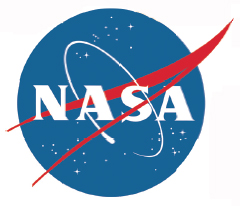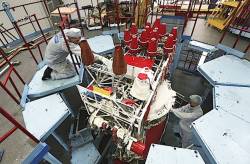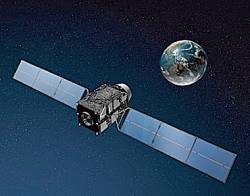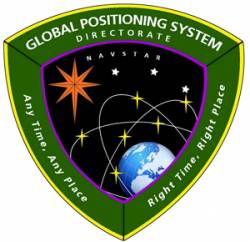Nine teams enter NASA’s $500,000 sense-and-avoid Challenge

Nine teams of students and private sector inventors will compete this fall to see who can build the best detect-and-avoid system for small unmanned aircraft.
By Inside GNSS
Nine teams of students and private sector inventors will compete this fall to see who can build the best detect-and-avoid system for small unmanned aircraft.
By Inside GNSS Working on a GLONASS-M satellite at Reshetnev ISS
Working on a GLONASS-M satellite at Reshetnev ISSThe Russian GLONASS system, which had appeared to be recovering from a series of organizational and technical problems in recent years, suffered two major disruptions during April.
By Inside GNSSAs engineers painstakingly work their way through tests of the first full operational capability (FOC) Galileo satellite at the European Space Agency’s European Space Research and Technology Center (ESA/ESTEC) in Noordwijk, The Netherlands, European space sources have acknowledged that the new-generation spacecraft’s maiden voyage will not occur until December 28, and even that date looks highly unlikely.
By Inside GNSS QZSS satellite looking at Japan from above (JAXA image)
QZSS satellite looking at Japan from above (JAXA image)Japan’s and India’s regional and augmentation satellite navigation programs look forward to an active year, according to speakers at March’s Satellite Navigation Summit in Germany.
By Inside GNSS Beidou control room
Beidou control roomCompass/BeiDou-2, China’s GNSS program will launch 5 satellites this year to join the 11 already in orbit, according to Li Xing, a representative of the China Satellite Navigation Office. This will support a planned declaration of initial operational capability (IOC) for a regional system covering 84˚E to 160˚E and 55˚S to 55˚N, he said at the Munich Satellite Navigation Summit in March.
The rapid development of the Chinese system was refelcted in the allocation of its own session during this year’s Summit, the most important GNSS policy gathering in Europe.
By Inside GNSSThe European GNSS program expects to gain an additional €7 billion (US$9.1 billion) budget for 2014–2020 to support Galileo and the European Geostationary Navigation Overlay Service (EGNOS), a satellite-based augmentation system that currently provides differential corrections to GPS signals, according to Paul Flament, Galileo and EGNOS program manager for the European Commission. He spoke at the 2012 Munich Satellite Navigation Summit that ended on March 15.
By Inside GNSS Sergey Revnivykh, GLONASS program, Roscosmos
Sergey Revnivykh, GLONASS program, RoscosmosGLONASS completed its long trek back to full operational capability with 24 operational satellites in the constellation last December, but Russia intends to keep pushing ahead with its GNSS, said Roscosmos official Sergey Revnivykh at the Munich Satellite Navigation Summit in March.
GLONASS now has a 347 billion ruble (US$11.81 billion) budget approved through 2020, by which time the system is scheduled to have 24 satellites transmitting both the new CDMA and legacy FDMA signals.
By Inside GNSS New GPS III Test Chamber (Lockheed Martin photo)
New GPS III Test Chamber (Lockheed Martin photo)The United States GPS program is without doubt the elder statesman of GNSS, but it has had some close calls recently.
At the 2012 Munich Satellite Navigation Summit in March, a high-level Department of Transportation offical and the head of the Air Force GPS Directorate hailed continuing progress on the Global Positioning System’s third-generation satellite development and next-generation control segment (OCX), while apparently escaping — relatively unscathed — the dual perils of Congressional budget cuts and LightSquared interference.
By Inside GNSSRussia’s GNSS program plans to launch three more satellites in the first half of 2012 as part of a 20.55 billion ruble (US$655 million) federal target program budget for the coming year, the Roscosmos space agency announced on January 17.
By Inside GNSSIf the readership of insidegnss.com news is any indication, 2011 was the year of LightSquared.
Articles about the would-be wireless broadband company that wants FCC approval to set up a terrestrial network transmitting on frequencies next door to GPS and other GNSS L1 signals garnered the most page views on our website for 6 out of 12 months.
By Inside GNSSEurope’s first two Galileo satellites have reached their final operating orbits, opening the way for activating and testing their navigation payloads.
Marking the formal end of their launch and early operations phase (LEOP), on November 3, control of the satellites was passed from the CNES French space agency center in Toulouse to the Galileo Control Center (GCC) in Oberpfaffenhofen, Germany.
By Inside GNSSRussia launched a Proton-M rocket carrying three GLONASS-M satellites from the Baikonur space center at November 4 after a 24-hour delay due to technical reasons, a spokesman for the Federal Space Agency Roscosmos said.
This was first launch of a Proton-M rocket with GLONASS satellites from Baikonur since a failed attempt last December. That led to the dismissal of several top officials in the space agency and industry and the appointment of Vladimir Popovkin to head the space agency.

The GPS program continues progress on several fronts — in space and on the ground.
During fall 2010, the U.S. Air Force and the Raytheon Company team developing the GPS Advanced Control Segment (OCX) successfully carried out an integrated baseline review (IBR) for the next-generation system on schedule.
When completed in 2015 under the current schedule, GPS OCX will deliver control segment enhancements designed to provide secure, accurate and reliable navigation and timing information to military, commercial and civil users.
By Inside GNSS